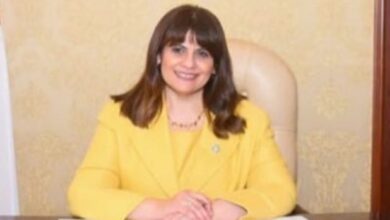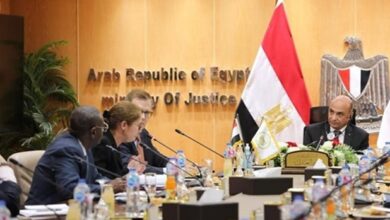The ministerial committee charged with discussing funding options for Egypt’s first nuclear project in Dabaa will meet within a few days to examine a report prepared by the project’s international adviser, said official sources from the Ministry of Electricity.
The meeting will be headed by the minister of finance and attended by the ministers of electricity, international cooperation, and economic development.
The same source, which spoke on condition of anonymity, said the committee will look at three main scenarios for funding. In the first option the Egyptian government would provide the money for the project from its own resources, and in the second option the government would form a partnership with the private sector. However, that would violate the new law which stipulates that the nuclear project must be exclusively owned and operated by the government.
The third option is to have the companies that present offers to supply the components of the nuclear station also present offers for funding.
The source also said that local banks may be able to finance part of the cost of the first station, which is estimated at US$4 billion, since the capital payback period is usually no longer than five years.
The National Bank of Egypt had offered to grant the government a loan of US$1 billion to finance the nuclear project in the mid 1990s, the source added.
The World Bank is unlikely to fund the project, though, since it had previously declined to finance Egypt’s nuclear project in 1985. It warned that if Egypt carried on with its nuclear project it would suspend funding to other projects. The source, however, denied claims that the World Bank was acting on instructions from the US, which provides 70 percent of its capital.
Meanwhile, the Ministry of Electricity submitted executive regulations for the nuclear law to 12 different bodies including a number of sovereign ministries as well as the ministries of environment, health, civil aviation, and housing, said an official source from the Nuclear Safety Authority.
The Ministry of Electricity will then review the regulations, taking into consideration any remarks made by the ministries, and submit the final version to the prime minister for approval.
The approval for the body to supervise all nuclear activities is expected in October. This authority will work independent of the Ministry of Electricity.
A political and strategic studies center in Israel said that Egypt’s nuclear project in Dabaa may soon lead it to join the so-called "nuclear club," a list of states believed to posses nuclear weapons. The center warns that Egypt’s peaceful nuclear project will provide the scientific and technological base for a military project and the building of a nuclear bomb.
The study, prepared by Zvi Mazel, a former Israeli ambassador to Egypt, noted that Egypt signed the Nuclear Non-Proliferation Treaty (NPT) in 1981 and has since been calling for Israel to sign the treaty to work toward ridding the Middle East of nuclear weapons.
However, the study goes on, Egypt has so far declined to sign the additional protocol which enables the International Atomic Energy Agency (IAEA) to conduct surprise visits to the country's nuclear establishments. According to the study, Egypt has rejected signing the additional protocol out of fear that the region may one day enter into an arms race.
The study also says that Egypt's decision to carry out its nuclear project may be driven by a desire to preserve its status in the region, particularly after Iran's successes in the nuclear field.
Israel's alarm may be rooted in the fact that, since Egypt’s 2006 declaration to pursue a nuclear project, other Arab states–namely Saudi Arabia, the United Arab Emirates, and Jordan–have announced similar intentions, adds the study. Even Lebanon’s Hezbollah has urged the Lebanese government to examine the possibility of building a nuclear station to solve the country’s power problem.
Translated from the Arabic Edition.




